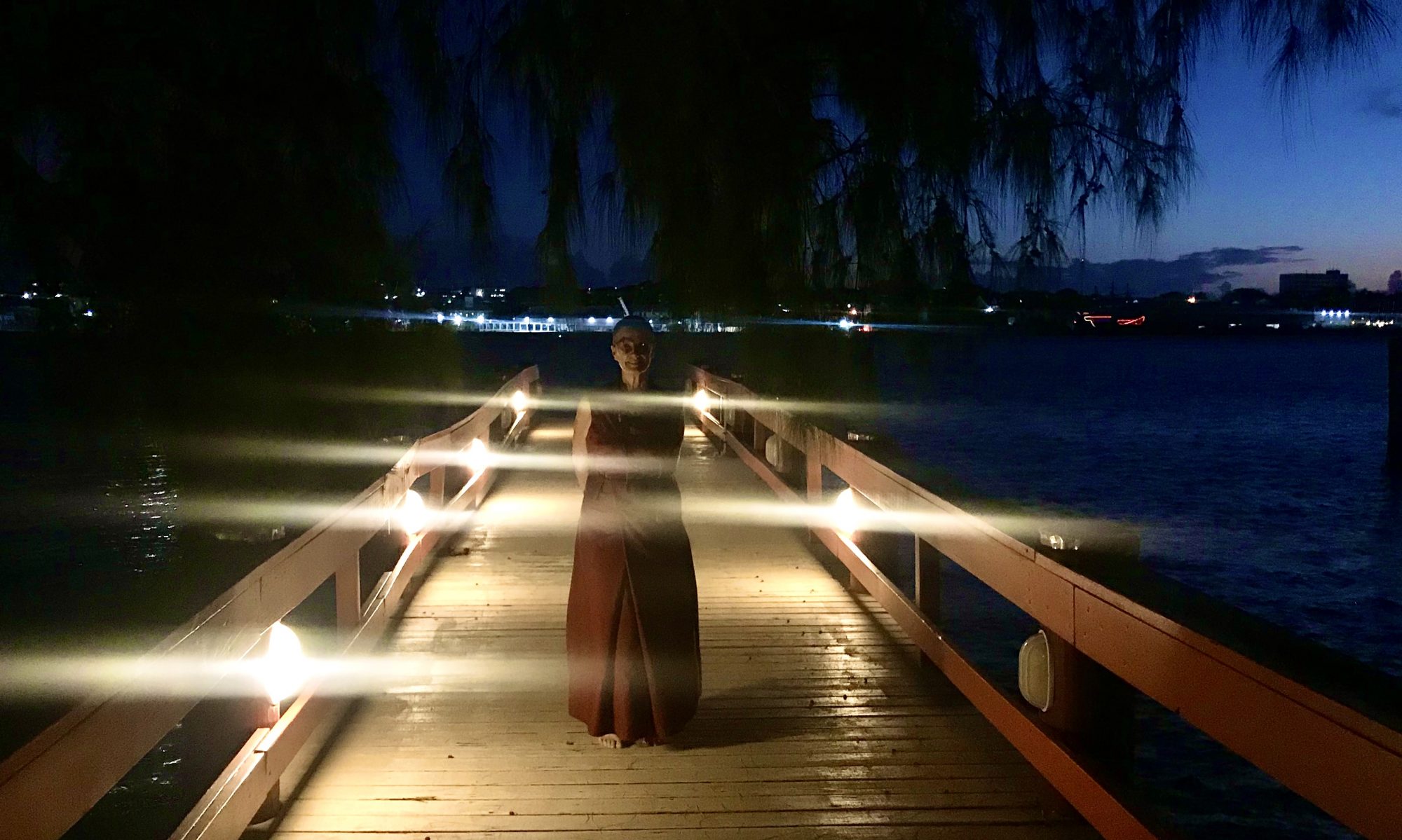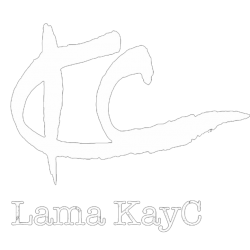In the spring of 1982, an elderly Tibetan teacher named Kalu Rinpoche toured the States, spending part of his East Coast time in New York City where I lived. I’d been looking for a meditation teacher and had been introduced to a man who’d just returned from India. This man told wonderful stories of his encounters with Tibetan Lamas and phoned me one day to say that he felt I should attend something called the Kalachakra Empowerment which was to be bestowed by Kalu Rinpoche, an elderly Dharma teacher and practitioner. The Kalachakra (Wheel of Time) is one of the highest yoga tantras and in the early 1980’s had only been given in the West by His Holiness The Dalai Lama. To bestow the Kalachakra empowerment was said to be beneficial for entire countries, as it promoted peace and prosperity, and is one of the few highest yoga tantras that can be given to the public.
I was hesitant at first (well, until I heard the name Kalu Rinpoche which gave me all kinds of goosebumps) because it would take four days to complete this strange, new activity. I couldn’t really see the point but acquiesced, attended the first introductory evening and found myself uncommonly drawn to this incredible being named Kalu.
The second morning, when the empowerment was to officially begin, Rinpoche said – through a translator, as he only spoke Tibetan – that to participate in this empowerment correctly, one should take refuge. The meaning of the ceremony was briefly explained. I remember hearing that we would be taking refuge in the Buddha, in his teachings called Dharma, and in the Noble Sangha or community, but don’t recall the rest. Of course, at the end of the explanation I stood up to go to the front of the auditorium near the stage and do just that. My new friend jumped up beside me and asked something like, “Are you really going to do this?” or “Do you know what you’re doing?” Well, obviously, I had no idea what I was actually doing so my response was, “Whatever he says I’m supposed to do, that’s what I’ll do,” thinking that if anyone knew what this was all about, it would be the man on the throne.
So I took refuge, miming as best I could the Tibetan syllables Rinpoche uttered very slowly. At the end of the refuge ceremony all sixty-six of us formed a line to pass by Rinpoche’s throne: a high seat that was really a large wooden rectangular box on its end with meditation cushions on top, covered with colorful silks and brocades. As I approached him, all kinds of feelings arose, ones I couldn’t remember having had before. One might be called devotion, another was probably just plain awe. He handed me a card with a new name inside, a lama standing beside him placed a red cord around my neck, and I almost fell into the arms of the next lama as I stumbled backwards from Rinpoche, unable to turn my gaze away from him.
There was a break after the refuge ceremony, and my new friend and others I’d met the day before gathered around me to see what name Rinpoche had given me, but there was no English translation in my refuge card. One young man said, “I know what it is. I listened carefully when he said it. He named you Tsultrim Palmo and that’s the name he gives women who are going to become nuns.”
My first thought was, I need a cigarette. What came out of my mouth was, “Well, he may be enlightened, but this time he’s wrong!”
Fast forward four years: I’d finished all the preliminary practices, was a student of Tibetan language, and kept up an extensive daily practice. I’d also moved to the monastery to prepare to go into strict seclusion for three years and three months – an intensive retreat that is a distinctive feature of the Tibetan Buddhist tradition. Rinpoche came then to stay for more than two months to give us most of the empowerments we would need for the practices we’d do in those three years, and while I hadn’t seriously considered taking the vows of a novice nun before that time, the idea of renunciation was becoming more and more attractive. After all, in those in-between years my fifth serious relationship had gone sour, I was still working hard for little compensation, and had only found contentment in the practice of Dharma. Nothing else was working out at all. Anyone going into the retreat had to take vows for the duration so ordination was on my mind when the day arrived that Rinpoche announced he’d be giving vows of renunciation in the early morning in two days’ time.
I had a big decision to make. Would I become a nun? Would I complete the retreat first and then see? My heart was telling me that if I was going to take vows, I’d need all the help I could get and the greatest help, it seemed to me, would come from taking the vows with Kalu Rinpoche.
The next morning I asked Lama Norlha if he had a few minutes for a question and, surprisingly, for as busy as he was, he took the time to see me. I told him I was considering taking vows – one of only two times I remember in more than thirty years that I truly surprised him. However, I wasn’t going to do it unless he promised two things: first, that he not say a word to anyone else because this was a decision for my life, not theirs; and, second, that he intercede for me to allow me to ask Kalu Rinpoche if this is what I should do.
First promise given, Lama Norlha rushed me upstairs to Rinpoche’s rooms. Not realizing we were going to do this so quickly, I hadn’t had time to get rid of everything I was carrying: jacket, scarf, book, and a nice red apple from the breakfast buffet. While I waited, Lama went into Rinpoche’s tiny room for a few minutes, then came out and motioned to me to follow him.
I don’t remember if there was even space to do prostrations to Rinpoche, the room was so small. Lama Norlha just said, “Sit!” so I sat on the floor in front of Rinpoche and his pecha table. I set the clothes, the book and the apple next to me on the floor.
Lama Norlha nodded to me and I said something like, “Rinpoche, I’m interested in taking nun’s vows, but I’m not sure this is the correct thing for me to do. “
Lama translated.
Rinpoche answered.
Lama translated, “Rinpoche says, vows are easy to take, not so easy to keep.”
My heart did a little flip and I’ll never know if it was a flip of relief or a flip of disappointment.
I said, “Ah, ok, then. Maybe I’ll wait till after retreat and consider it again then. I can do that and it’s probably best.”
Lama Norlha translated.
Rinpoche spoke.
Lama Norlha turned to me and said, “Rinpoche says, you take vows tomorrow morning.”
And that was that!
I managed to get up off the floor, bow to Rinpoche, pick up my things and follow Lama out of the room, but I wasn’t able to imagine what I’d just done! Was I really ready to renounce everything? Renunciation for life? Nun’s vows for LIFE?! What the hell was I doing?
As I walked away from Rinpoche’s room, I looked down at what I was carrying. It seemed I was carrying too much stuff. My hands weren’t free. I still had the jacket over my arm, and in my hands my book, my scarf and my favorite fruit.
As I stared at its beautiful red color only one question arose in my mind. I stopped in the middle of the hallway and asked myself in all sincerity, “Oh, man, did I just renounce apples?”

